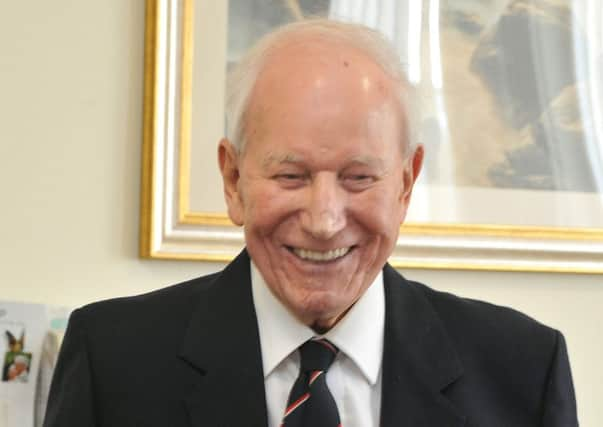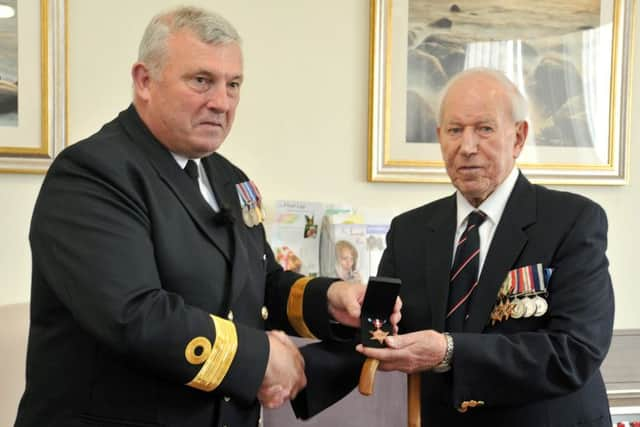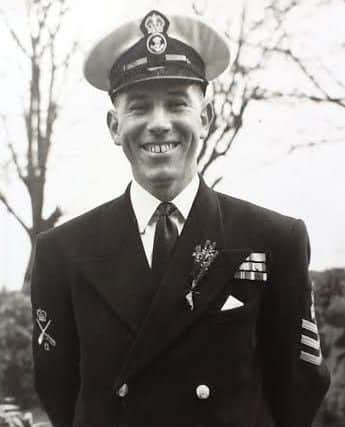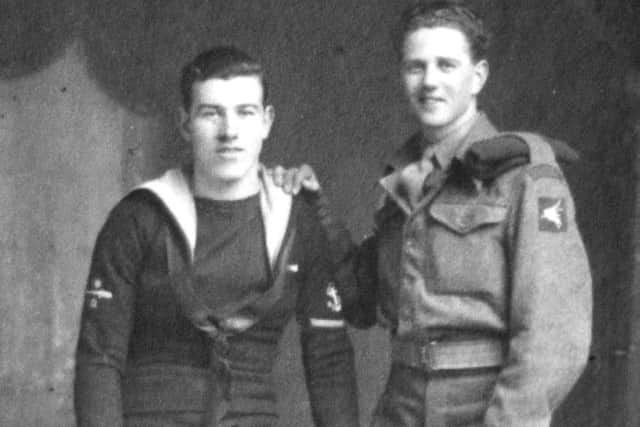War hero John collects Arctic Star distinction


John Johnstone, of Starr Hills Care Home in Lytham, was presented with an Arctic Star Medal for his efforts as part of the Arctic convoys during the Second World War.
The medal recognises service between 1941 and 1945 delivering vital aid to the Soviet Union, running the gauntlet of enemy submarine, air and surface ship attacks – voyages Sir Winston Churchill described as “the worst journey in the world.”
Advertisement
Hide AdAdvertisement
Hide AdMr Johnstone said: “I was very proud to receive the Arctic Star not only for myself but in recognition of all the sailors that served with me, many of whom didn’t return.”


The campaign cost the lives of around 3,000 sailors and merchant seamen – with over 100 civilian and military ships lost.
Beyond the threat of the enemy, men endured fearful weather conditions, the darkness of the polar winter and 24-hour daylight at the height of summer. If ships were sunk, sailors perished in minutes in waters barely above freezing.
Mr Johnstone, who retired from the Royal Navy in 1963, was presented with the medal by Naval Regional Commander for Northern England, Commodore Gary Doyle.
Advertisement
Hide AdAdvertisement
Hide AdCommodore Gary Doyle said: “It is a great honour to be able to officially award John his Arctic Star on behalf of the Royal Navy and indeed his country in recognition and gratitude for his service during the Second World War.


“The contribution made by the men of the Arctic Convoys and indeed the Atlantic Convoys to the war effort was considerable and should never be underestimated.
“One cannot begin to imagine the courage and fortitude young men such as John demonstrated during those Archangel runs. We should also remember those comrades of John’s that did not return – we owe them all a great debt of thanks.”
It is thought between 200 and 400 sailors – all now in their late 80s at their youngest – survive from the four-year-long campaign.
Advertisement
Hide AdAdvertisement
Hide AdAfter the war John received his Long Service and Good Conduct medal in April 1956, marrying wife Joan in the same year.


After retiring John spent 20 years working as a process worker for ICI in Thornton.
Fighting from the Arctic to Japan: How this brave Lytham sailor spent his war years
John’s first posting was as a boy seaman when, aged 16, he joined HMS Newcastle.
Advertisement
Hide AdAdvertisement
Hide AdJohn served on HMS Newcastle for two and a half years, attaining the rank of leading seaman.
John was on board when Newcastle was hit by a torpedo from an E Boat which incapacitated the ship.
HMS Newcastle was then towed into dock for repairs and three quarters of the company were sent to HMS Nile on mine-spotting duty.
Following his time on Newcastle, John joined HMS Inconstant and later joined HMS Indomitable in Sydney, where as part of an American-led operation to bombard Japan.
When the fleet was approximately 800 miles from its target the atomic bomb was dropped on Hiroshima.